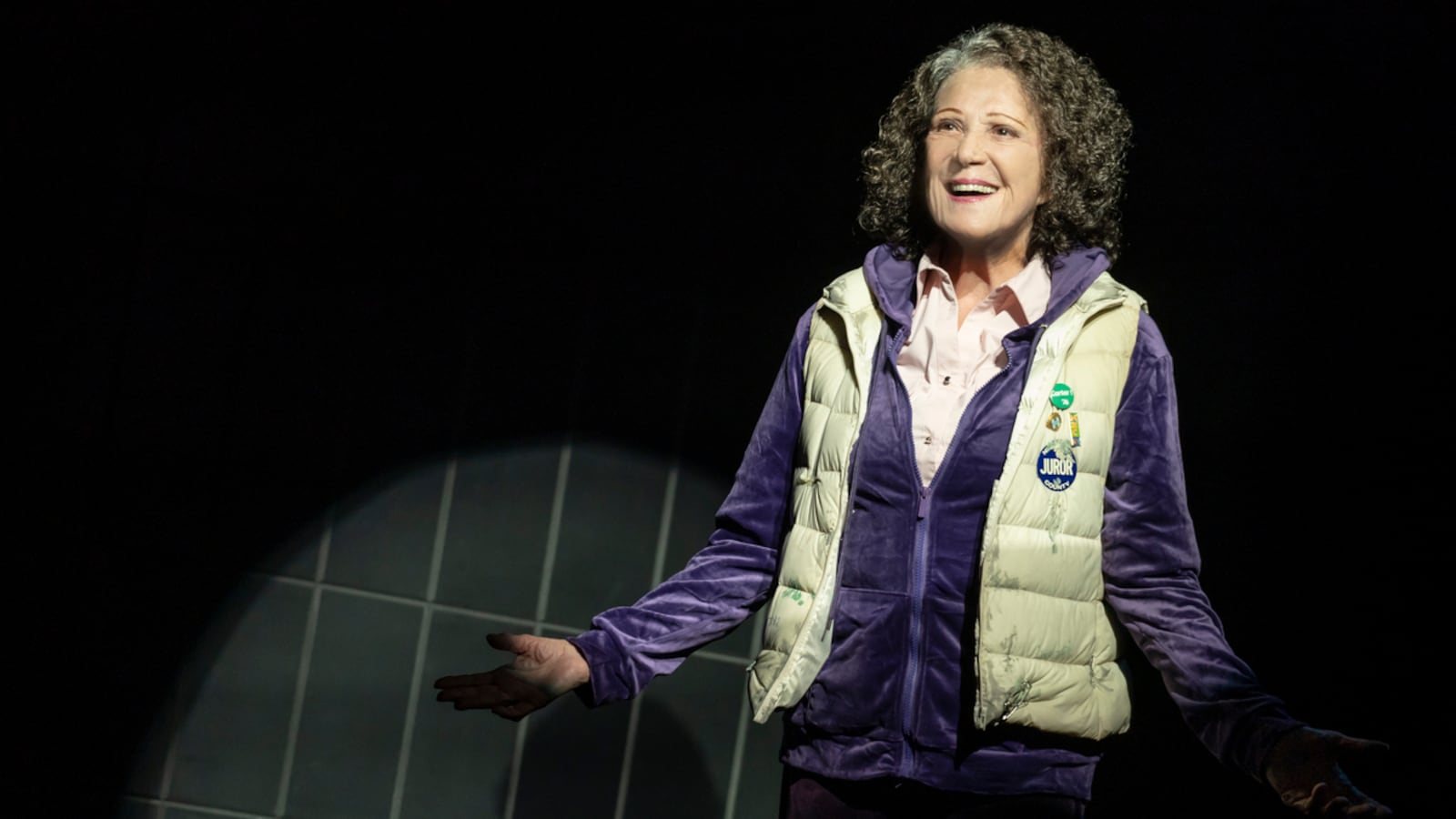We are in a “Big City, a time before cellphones,” according to the program for Noah Diaz’s play You Will Get Sick (Laura Pels Theatre, to Dec. 11). Birds are murderous, the great peril above that the characters live in fear of. The city seems like a modern city, rather than a prehistoric one. People communicate by phone, and there are acting classes and hospitals. But there is also a deliberate air of unreality in this Roundabout Theatre Production, of people lost in places and time. The characters don’t have names, the phone lines that connect their conversations crackle. When they are together they speak a little obviously, at a variance, over each other.
The characters are known by numbers, and the central relationship is between #1 (Daniel Isaac) and #2 (Linda Lavin). #1 is suffering from some kind of illness or illnesses, which are gradually disabling him. Straw issues forth from his mouth and body when it is being exceptionally beaten up; the play focuses on what a body means, what it is, and what it is not.
#2 demands money from #1 to do the most basic tasks to care for him, and yet her care of him grows over time, even if she still demands the money that comes in crisp, always-available notes from his shirt pocket, like a bodily ATM.
#2 also helps #1 tell those around him that he is sick. Marinda Anderson and Nate Miller, play numbers 3 and 4 respectively—doubling up roles as a sister, an acting class teacher, an acting class student, and an ex-boyfriend—and Dario Ladani Sanchez plays #5, whose voice we hear as an off-stage narrator until a surprise appearance before us. Performance versus reality are the dueling themes of the play. The straw spewing forth from Isaac, as he tries to hide the gravity of what is wrong with him, echoes with Lavin’s character trying to nail an audition to play Dorothy in The Wizard of Oz—a recurring totem in You Will Get Sick, right down to what home, connection, and kinship means, what they cost, and how and where one finds them.
This is an odd play; the characters mostly speak self-awarely and bluntly at us or across each other, and then sometimes—in its best moments—intimately and properly as characters relating to one another. It feels like a too-precious theatrical experiment in form, when it would work best as what it is at its heart: a play about confronting and naming illness and mortality for what they are, of recognizing one is ill, of facing that, saying it and accepting it, as #1 struggles to do.
Thankfully, Lavin has exquisite timing, and treats her character as a character; #2 is warm, thorny, wisecracking, scolding, practical, and also a bit dotty. She and Isaac do their best to marshal what the play could be, to take us to its human heart. Isaac’s physical exertions, conveying a body in freefall, dovetail with some stunning and clever on-stage illusions directed by Sam Pinkleton. The set design by dots deserves a special mention for a truly radiant visual surprise. No spoilers here, but Dorothy fans who know there’s no place like home will especially appreciate it.






